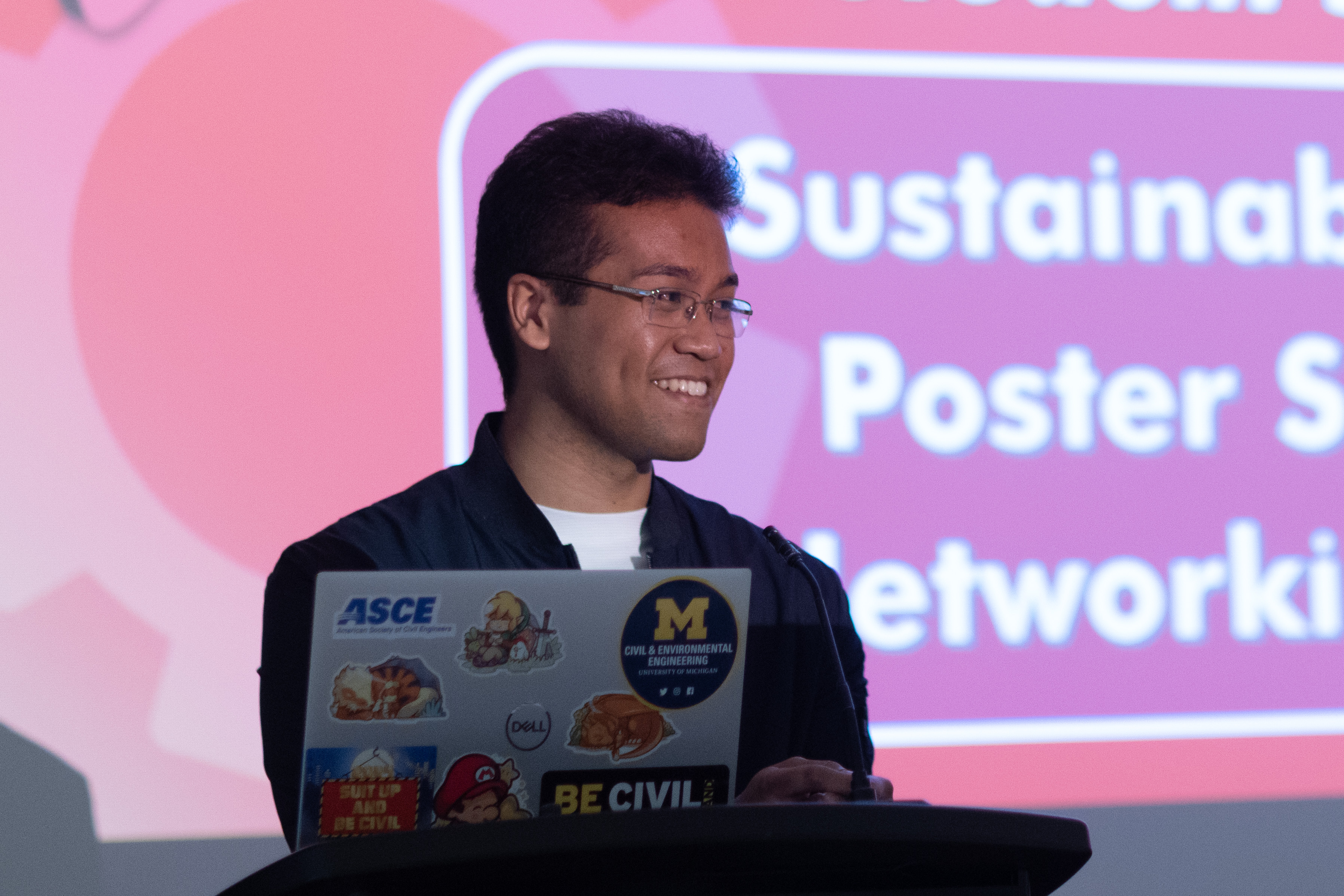Civil engineering is an ever-evolving field.
Mekhi Boulware started at UMD in the Fall of 2020; his first year of classes was held online due to the Covid-19 pandemic. He entered majoring in Letters and Sciences, but always intended to apply to get into Civil Engineering. “I knew I wanted to solve problems related to environmental issues,” he says. His first in-person semester, the start of sophomore year, was also his first semester in CEE. He is now a senior in the Environmental/ Water Resources track, with his main interests being in water treatment technologies and protecting public health.
Mekhi has taken on several leadership roles in the department. In his sophomore year, an ASCE Board member encouraged him to run for ASCE’s board as well. He ended up being elected Secretary and is now the President of ASCE. As President, one of his tasks this semester was organizing the 2024 ASCE Mid-Atlantic East Student Symposium, for which nine different schools sent ASCE representatives to UMD to participate in competitions such as Steel Bridge, Concrete Canoe, and Sustainable Solutions. He says the event was “a celebration of civil engineering and the hard work of participating students.”
Mekhi says his experience in ASCE has helped him develop better leadership skills such as task delegation and outreach. This year he received the department’s ASCE Outstanding Senior Award, presented to a senior member of UMD’s ASCE student chapter for outstanding scholastic achievement and for significant service to the chapter.
Mekhi is also the secretary for the Chi Epsilon Civil Engineering Honor Society. In this capacity, he has helped organize the Chi Epsilon Fall Career Fair for CEE students. “Being active in multiple student organizations allows me to interact with students from all grades of the CEE Department, which helps me understand current issues amongst the student body from multiple perspectives and contribute in meaningful ways,” he says. His involvement in student organizations leaves him little free time, but when he can, Mekhi likes to bake and read.
Mekhi’s leadership experiences have also brought him internship opportunities that have helped him narrow down his career interests over time, he says. The summer after sophomore year, Mekhi did research with Dr. Cui related to the 2021 Infrastructure Investment and Jobs Act (ILJA) infrastructure bill, looking at its impact and potential applications for stormwater and electric vehicle charging station projects in Maryland. This past summer, Mekhi did an internship with GHD’s Bowie, Maryland office in drinking water and wastewater engineering consulting. He says it helped him “connect what I’ve been learning in the classroom setting to bigger-scale, real life scenarios and learn more in depth about water treatment technologies.”
Mekhi likes the fact that faculty in our department tackle important environmental and social issues. He has worked with Dr. Kjellerup on her wastewater-based epidemiology (WBE) research, which tracks the level of viruses in wastewater and can play a role in anticipating outbreaks. Mekhi is currently taking Dr. Kjellerup’s ‘Global Green Challenge’ course, for which he will be traveling to Denmark to present a group project tied to the U.N.’s Sustainability Goals. He also enjoyed Dr. Torrents’ ‘Environmental Engineering Science’ class for the way it develops research skills, and especially Dr. Davis’s ‘Environmental Engineering Unit Operations’ class for the way it provides thorough insight into drinking water and wastewater treatment processes.
Mekhi says his favorite thing about civil engineering is that it is “an ever-evolving field, especially as we deal with emerging problems. There’s always a place for civil engineers.” For example, he points to the role of civil engineers in expanding infrastructure and other systems to meet the needs of a growing population.
After graduating this semester (May 2024), Mekhi plans to pursue his Master’s of Science in Environmental Engineering at the University of Michigan, Ann Arbor. He wants to continue researching wastewater treatment, and is considering getting his PhD later on. Any institution he attends will benefit as UMD has from his passion for the environment and his leadership abilities.
